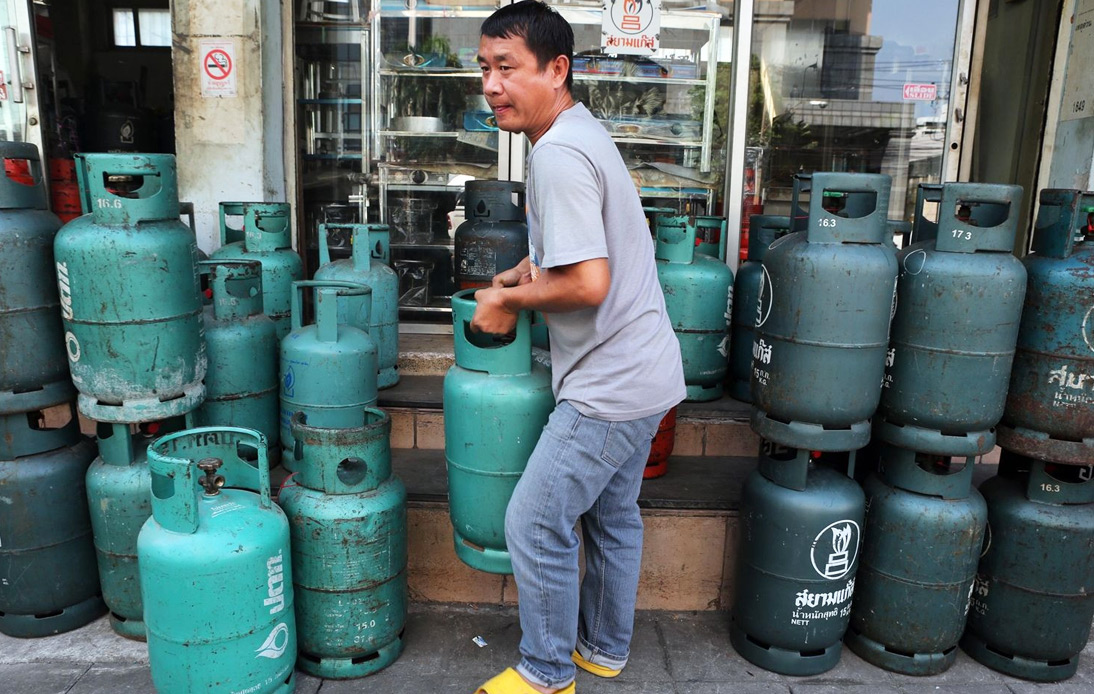
The Energy Policy Administration Committee (Epac) announced a three-month gradual increase in the price of liquefied petroleum gas (LPG), used as domestic gas.
Permanent Secretary for Energy and Epac member Kulit Sombatsiri explained that the LPG price, currently set at 363 baht per cylinder, will rise to 378 baht in July, to 393 in August, and to 408 in September.
Bangkok and neighboring provinces will see the new costs, but consumers in other provinces could face a higher increase due to transportation fees added to the final prices.
The move comes as authorities struggle to control huge spending stemming from the LPG price subsidy program. Therefore, the rise is expected to bring the price paid by consumers closer to the 460-baht market price.
Mr. Kulit said that Thai officials must carefully manage the Oil Fuel Fund, as the government has spent more than 30 billion baht on programs to cap LPG prices alone.
Before Thursday’s announcement, the government had increased the LPG price, earlier fixed at 318, to 333 baht in April and 363 baht this month. However, a ruling granted a 100-baht discount for LPG purchases to ease the financial burdens on low-income consumers.
The social welfare card scheme, set to end this month, had benefited four million people.
Epac also ordered energy giant PTT Plc to set the compressed natural gas (CNG)’s price at 15.59 baht per kilo, lower than the current 21 baht for gas in the country’s gas pool, to ease the burden on the transport sector.
Meanwhile, the government had developed strategies to better manage the outflow from the Oil Fuel Fund with a plan focused on controlling ex-refinery prices.
According to Deputy Prime Minister and Energy Minister Supattanapong Punmeechaow, energy officials have started talks with the state legal advisory body, the State Council, and the Attorney-General’s Office to determine whether it is possible to scalp a portion of the profits produced by Thai oil refineries.
The plan’s goal is to make the retail oil price less expensive and limit the financial burden on the Oil Fuel Fund.




















